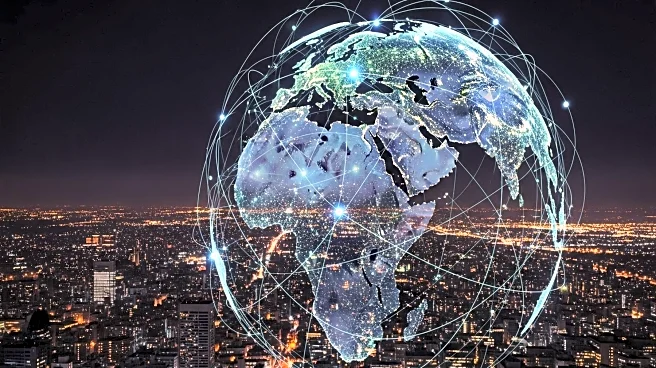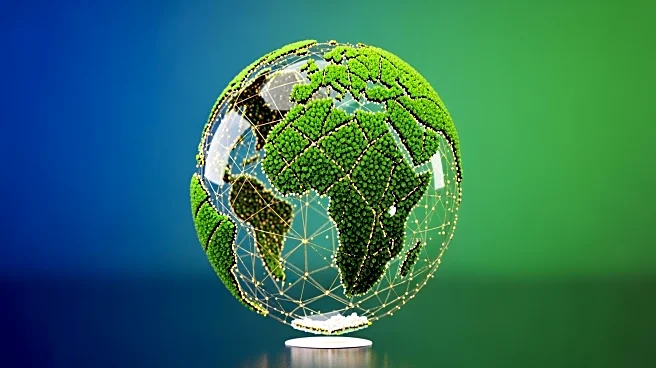What's Happening?
During the Shanghai Cooperation Organization summit in Tianjin, China, Indian Prime Minister Narendra Modi, Russian President Vladimir Putin, and Chinese President Xi Jinping were seen engaging in a friendly exchange. The summit, originally established to counter U.S. influence in Central Asia, has grown in significance, presenting a challenge to U.S. global leadership. Xi Jinping emphasized the need to reject Cold War thinking and rival power blocs, advocating for a U.N.-centered international system with multiple power centers and balanced global governance.
Why It's Important?
The summit highlights a shift in geopolitical alliances, with China, Russia, and India signaling unity against Western dominance. This realignment could impact U.S. influence in global affairs, as these nations push for a more balanced world order. The growing influence of the Shanghai Cooperation Organization suggests a potential recalibration of power dynamics, affecting international relations and economic partnerships. The U.S. may need to reassess its strategies to maintain its leadership role in global governance.
What's Next?
The summit's outcomes may lead to increased collaboration among member states, potentially affecting trade and security policies. The U.S. and its allies might respond by strengthening their own alliances and diplomatic efforts to counterbalance this emerging bloc. Future summits and meetings could further solidify these relationships, influencing global policy decisions and economic strategies.
Beyond the Headlines
The summit underscores the broader implications of shifting alliances, including ethical and cultural dimensions. As countries seek a more equitable global system, issues such as human rights and environmental policies may come to the forefront. The emphasis on rejecting Cold War thinking could lead to new diplomatic approaches and conflict resolution strategies.










